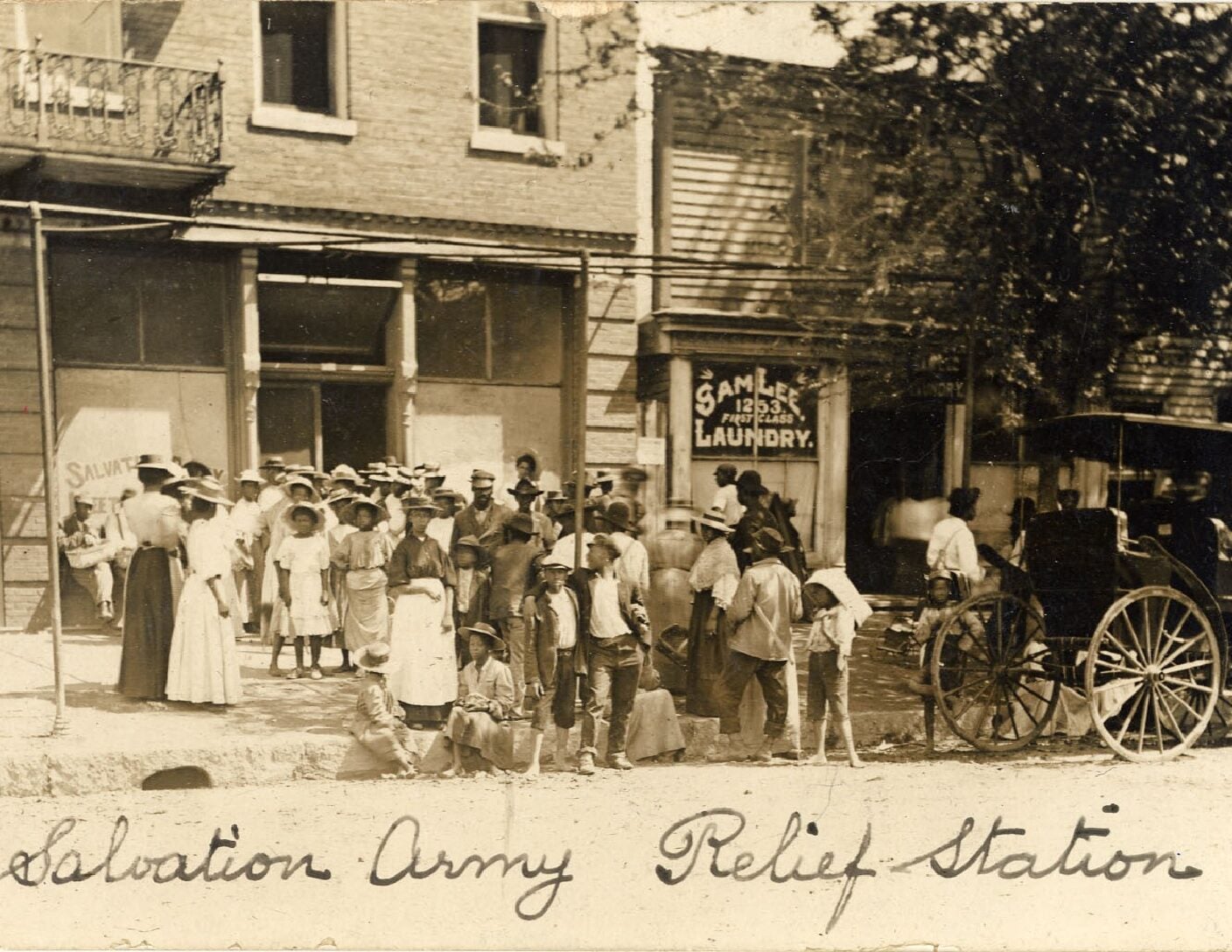(Disclaimer: The opinions expressed in this column are those of the author and do not necessarily reflect those of The Augusta Press.)
Everyone is familiar with the red kettles that appear at storefronts all over the city at Christmas, but most might not be aware of the long history of service that the Salvation Army has provided to the CSRA.
The Salvation Army’s roots in Augusta go back over 130 years when the group first began offering assistance to the poor in 1891.
According to Joe Herzberg, human resources director for the Salvation Army, the group found tremendous need in the mill colony known as Harrisburg and put its first location on Broad Street in the heart of the community.
“You have to remember that in those days, people worked extremely long hours, at least six days a week. There were no child labor laws. It was an impoverished area,” Herzberg said.
Despite the fact that people could easily find jobs, the wages were far below what would be considered under the poverty line today. Many families could barely afford to eat, much less the luxury of new shoes.
Government programs and grants did not exist at the time, Herzberg says, and so The Salvation Army relied solely on generous donations from strangers and that anonymous type of donations eventually led to the famous red kettles.
MORE: Something you may not have known: The belle of the ball
In 1908, Augusta was hit by one of its worst floods, and the Salvation Army was up to the task, opening up a relief center that helped those displaced with food and temporary shelter until the waters receded.
The Salvation Army also stepped up when Augusta was hit by a devastating fire in 1916, according to Herzberg. Major James Yates, the head of the Augusta chapter had been reassigned to another city but returned in the aftermath of the fire to help lead the relief efforts.
Yates was hailed in the local newspapers for his commitment to helping the people of Augusta.
“He really took a shine to Augusta. He loved Augusta and is now buried in Westover Cemetery,” Herzberg said.
By 1914, the Salvation Army was already an international organization, but compared to what it is today, it was basically a hand-to-mouth organization. It would be a terrible tragedy that would bring the organization to true international prominence.
In May of that year, hundreds of volunteers, senior leaders and the 41 member Canadian band of the Salvation Army boarded the steamship Empress of Ireland bound from Canada to attend a conference in London.
As the Empress of Ireland approached the North Atlantic, a massive fog descended, leaving the ships in the area blind. At 1:56 in the morning, the prow of the Norwegian collier Storstad slammed into the side of the ship.
Despite all the safety improvements made on ships in the wake of the Titanic disaster, the ship sank in 14 minutes leading to the loss of 1,012 passengers and crew. According to the Salvation Army’s website, as many as 150 of its members were among the dead.
Despite the tragedy, the Salvation Army marched forward with its ministry and grew in influence.
While the Salvation Army volunteers are most visible at Christmastime, the organization offers food and shelter to the homeless year-round. The Salvation Army’s programs also help people avoid homelessness through rent and utility assistance and most of its income remains through private donations, according to Herzberg.
MORE: Something you may not have known: Catacombs under St. Paul’s Church?
In 2011, thanks to a donation from the Ray and Joan Kroc Foundation, the Salvation Army unveiled its Kroc Center, which was built not far away from its original location on Broad Street.
In the 130 years of serving Augusta, the Salvation Army has suffered only one scandal.
Before the red kettles came along, the organization used large lobster pots to collect donations. Just before Christmas in 1918, a man lost control of his car in heavy rain and slammed into the lobster pot, knocking it over and spilling most of the contents into the storm sewer, according to Herzberg.
The driver sped off after the accident, according to press accounts.
The incident made the front pages where the headline in The Augusta Chronicle screamed, “Christmas Dinners for Poor In Gutter When Meanest Man Upsets Salvation Army Pot.”
…And that is something you may not have known.
Scott Hudson is the senior reporter for The Augusta Press. Reach him at scott@theaugustapress.com











